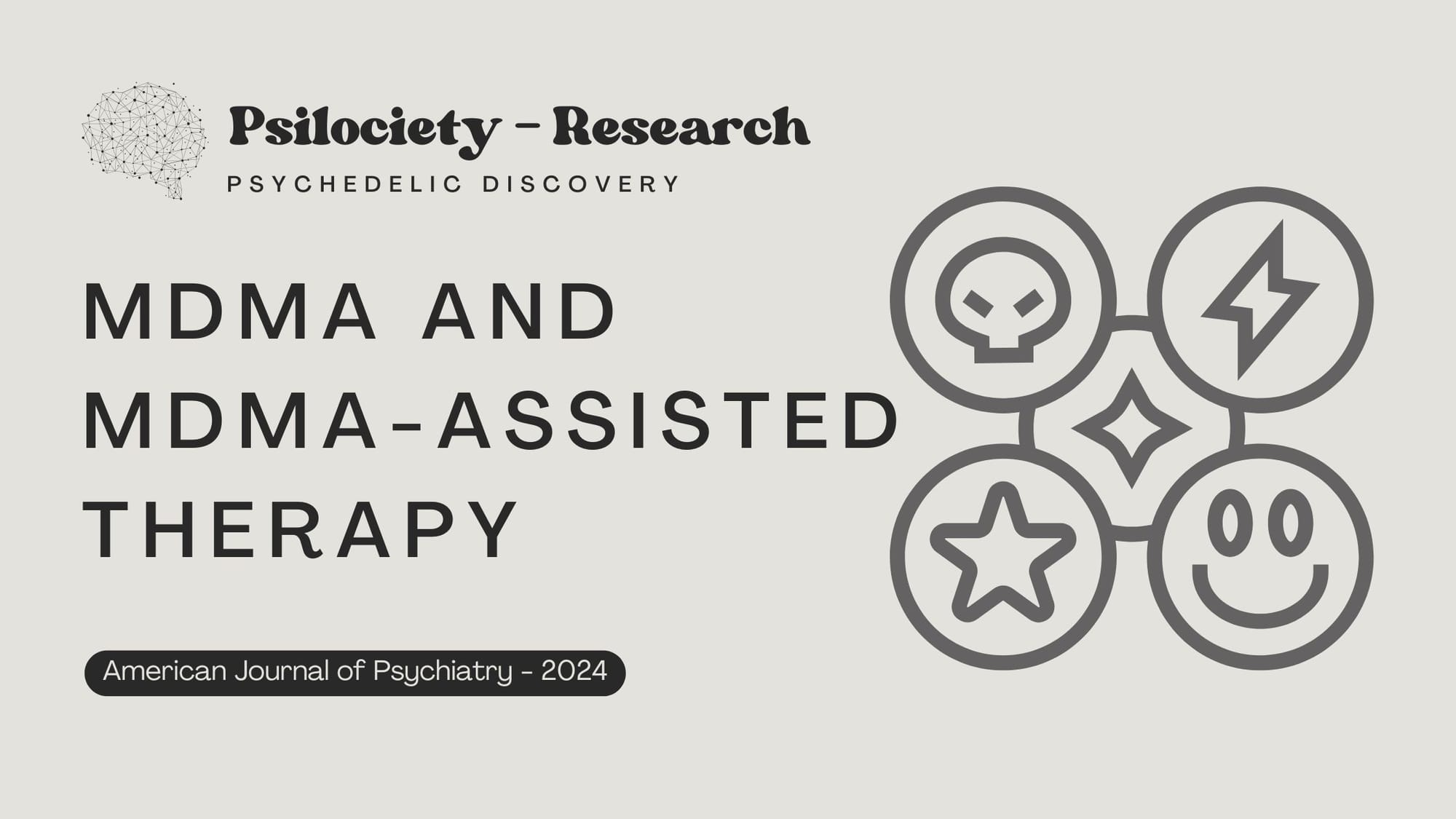MDMA and MDMA-Assisted Therapy
MDMA-assisted therapy shows promising results in PTSD treatment, but FDA concerns require further trials before approval.

Title & Introduction
- Paper Title: MDMA and MDMA-Assisted Therapy
- Published In: American Journal of Psychiatry
- Publish date: December 20, 2024
- Authors: Aaron S. Wolfgang, Gregory A. Fonzo, Joshua C. Gray, John H. Krystal, Adrienne Grzenda, Alik S. Widge, Nina V. Kraguljac, William M. McDonald, Carolyn I. Rodriguez, Charles B. Nemeroff
- Objective: To distinguish between the effects of recreational MDMA use and controlled MDMA-assisted therapy (MDMA-AT) in clinical settings, particularly for PTSD treatment.
- Importance: Provides critical insights into the therapeutic potential of MDMA-AT, addressing efficacy, safety, and policy considerations while differentiating it from recreational use.
Summary & Takeaways
Key Takeaway: MDMA-AT shows strong potential as a treatment for PTSD, with clinical trials demonstrating significantly higher recovery rates compared to placebo-assisted therapy. However, FDA approval remains pending due to concerns over study design.
Practical Application:
MDMA-AT could provide a breakthrough treatment for PTSD patients who do not respond to conventional therapies, with long-term remission rates outperforming traditional antidepressants.
Key Background Information
- Context: MDMA has been used both recreationally and therapeutically since the 1970s. In 2017, the FDA designated MDMA-AT as a Breakthrough Therapy for PTSD. However, regulatory challenges persist.
- Hypothesis: MDMA-AT, when conducted in a controlled setting, can be an effective and safe intervention for PTSD, significantly outperforming placebo-assisted therapy.
Methodology
- Study Design: Review of randomized clinical trials and mechanistic studies on MDMA-AT.
- Participants: Data from eight randomized trials involving 171 participants receiving MDMA and 126 receiving placebo.
- Intervention/Exposure: MDMA administered at 75-125 mg doses, with a supplemental half-dose 90-120 minutes later, in conjunction with psychotherapy.
- Controls: Placebo or low-dose MDMA (40 mg) groups.
- Duration: Studies included multiple MDMA sessions over a period of weeks, followed by long-term follow-up assessments.
Key Findings
Primary Outcomes:
- 67-71% of PTSD patients receiving MDMA-AT no longer met PTSD criteria post-treatment, compared to 32-48% in placebo groups.
- MDMA-AT had large effect sizes (Cohen’s d=1.95–2.10) in within-group PTSD symptom reduction.
- The therapeutic effects persisted at long-term follow-ups.
- The FDA rejected the initial New Drug Application in 2024, requiring an additional Phase 3 trial due to concerns about study design.
Secondary Outcomes:
- MDMA enhances trust and emotional openness, facilitating deeper therapeutic engagement.
- Unlike classic psychedelics, MDMA maintains ego integrity and cognitive clarity.
- Risks associated with recreational MDMA use (e.g., neurotoxicity, hyperthermia) are not representative of MDMA-AT outcomes.
Interpretation & Implications
- Conclusion: MDMA-AT offers a promising treatment for PTSD with high efficacy and long-term benefits. However, additional regulatory approvals and further research are required before widespread clinical implementation.
- Implications: If approved, MDMA-AT could become a first-line intervention for PTSD, reducing reliance on long-term pharmacotherapy.
- Limitations: The FDA raised concerns over study design, necessitating another Phase 3 trial before full approval.
Researchers & Publication
- Researchers: Aaron S. Wolfgang, Gregory A. Fonzo, Joshua C. Gray, John H. Krystal, Adrienne Grzenda, Alik S. Widge, Nina V. Kraguljac, William M. McDonald, Carolyn I. Rodriguez, Charles B. Nemeroff
- Publication Name: American Journal of Psychiatry
- Study URL: https://doi.org/10.1176/appi.ajp.20230681

